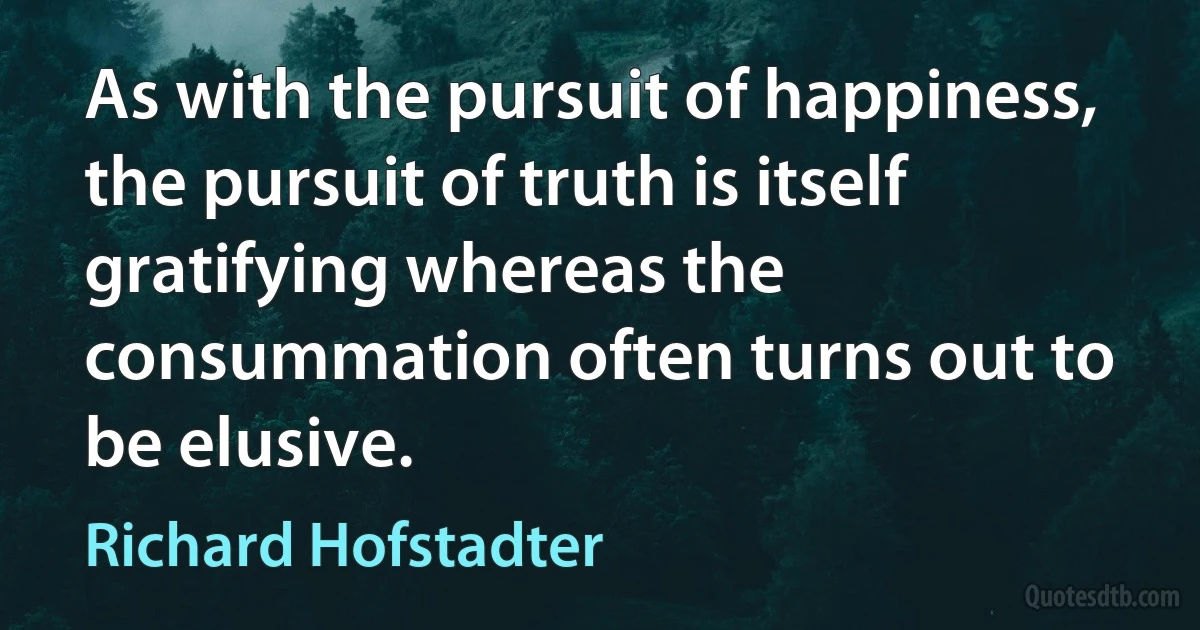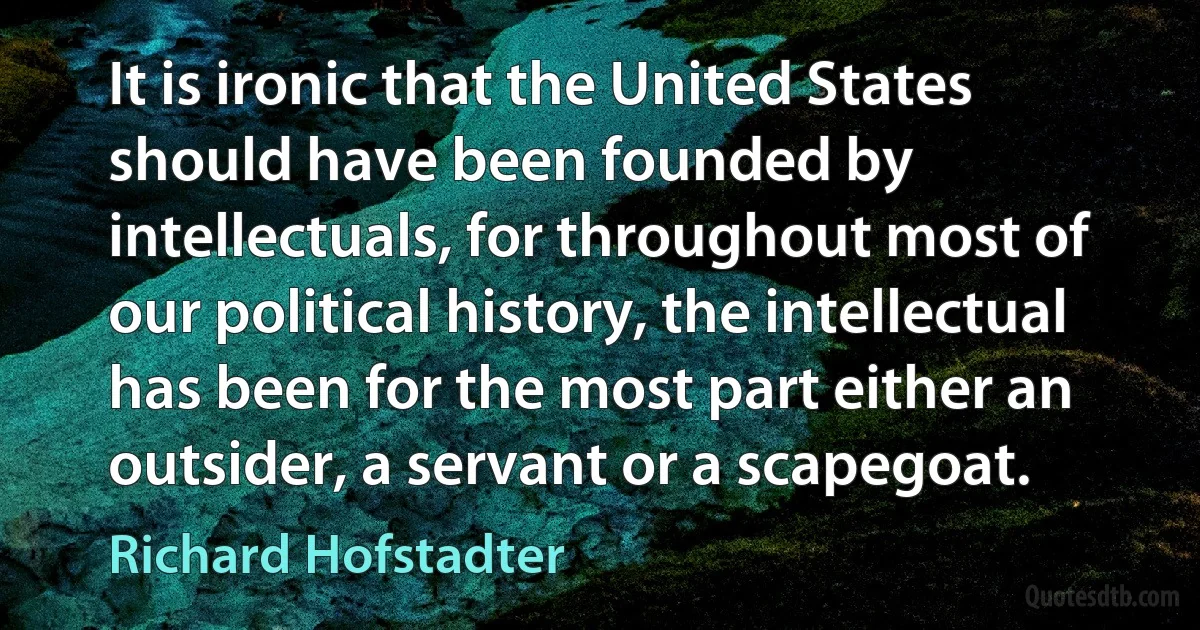Richard Hofstadter quotes
The American farmer, whose holdings were not so extensive as those of the grandee nor so tiny as those of the peasant, whose psychology was Protestant and bourgeois, and whose politics were petty-capitalist rather than traditionalist, had no reason to share the social outlook of the rural classes of Europe. In Europe land was limited and dear, while labor was abundant and relatively cheap; in America the ratio between land and labor was inverted.

Richard Hofstadter
The intellectual's ... playfulness, in its various manifestations, is likely to seem to most men a perverse luxury; in the United States the play of the mind is perhaps the only form of play that is not looked upon with the most tender indulgence. His piety is likely to seem nettlesome, if not actually dangerous. And neither quality is considered to contribute very much to the practical business of life.

Richard Hofstadter
The idea of the paranoid style as a force in politics would have little contemporary relevance or historical value if it were applied only to men with profoundly disturbed minds. It is the use of paranoid modes of expression by more or less normal people that makes the phenomenon significant.

Richard Hofstadter
The intellectual ... may live for ideas, as I have said, but something must prevent him from living for one idea, from becoming obsessive or grotesque. Although there have been zealots whom we may still regard as intellectuals, zealotry is a defect of the breed and not of the essence.

Richard Hofstadter
In using the terms play and playfulness, I do not intend to suggest any lack of seriousness; quite the contrary. Anyone who has watched children, or adults, at play will recognize that there is no contradiction between play and seriousness, and that some forms of play induce a measure of grave concentration not so readily called forth by work.

Richard Hofstadter
Major parties have lived more for patronage than for principles; their goal has been to bind together a sufficiently large coalition of diverse interests to get into power; and once in power, to arrange sufficiently satisfactory compromises of interests to remain there. Minor parties have been attached to some special idea or interest, and they have generally expressed their positions through firm and identifiable programs and principles. Their function has not been to win or govern, but to agitate, educate, generate new ideas, and supply the dynamic element in our political life. When a third party's demands become popular enough, they are appropriated by one or both of the major parties and the third party disappears. Third parties are like bees: once they have stung, they die.

Richard Hofstadter
Out of the beliefs nourished by the agrarian myth there had arisen the notion that the city was a parasitical growth on the country. Bryan spoke for a people raised for generations on the idea that the farmer was a very special creature, blessed by God, and that in a country consisting largely of farmers the voice of the farmer was the voice of democracy and of virtue itself. The agrarian myth encouraged farmers to believe that they were not themselves an organic part of the whole order of business enterprise and speculation that flourished in the city, partaking of its character and sharing in its risks, but rather the innocent pastoral victims of a conspiracy hatched in the distance. The notion of an innocent and victimized populace colors the whole history of agrarian controversy, and indeed the whole history of the populistic mind.

Richard Hofstadter
Historically, it may be useful to fancy playfulness and piety as being the respective residues of the aristocratic and priestly backgrounds of the intellectual function. The element of play seems to be rooted in the ethos of the leisure class, which has always been central in the history of creative imagination and humanistic learning. The element of piety is reminiscent of the priestly inheritance of the intellectuals: the quest for and the possession of truth was a holy office. As their legatee, the modern intellectual inherits the vulnerability of the aristocrat to the animus of Puritanism and egalitarianism and the vulnerability of the priest to anticlericalism and popular assaults upon hierarchy. We need not be surprised, then, if the intellectual's position has rarely been comfortable in a country which is, above all others, the home of the democrat and the antinomian.

Richard Hofstadter
![Arthur Schlesinger, Jr., in a mordant protest written soon after the [1952] election, found the intellectual "in a situation he has not known for a generation.” After twenty years of Democratic rule, during which the intellectual had been in the main understood and respected, business had come back into power, bringing with it "the vulgarization which has been the almost invariable consequence of business supremacy.”. (Richard Hofstadter)](https://cdn.quotesdtb.com/img/quotes_images_webp/60/richard-hofstadter-almost-bringing-184760.webp)


